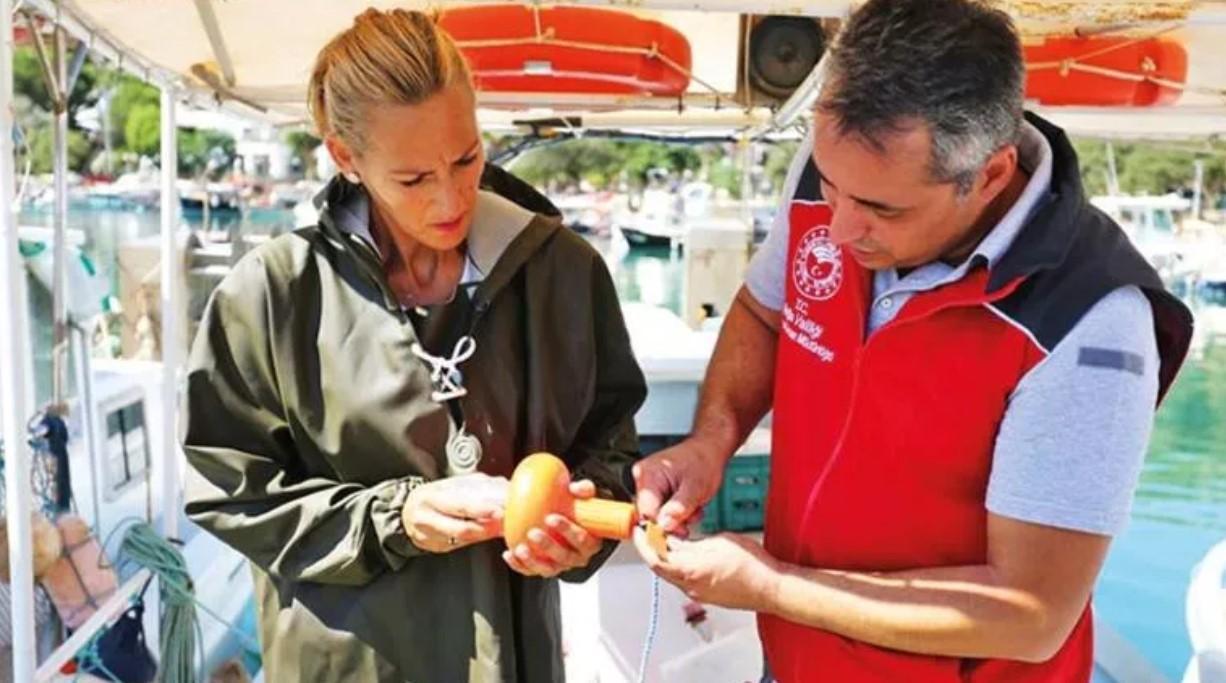
In a bid to eradicate the problem of ghost nets and prevent poaching, fishermen who are engaged in commercial fishing in the seas will be required to attach QR code tags to all their net materials, the Agriculture and Forestry Ministry has announced.
After the end of the fishing ban on Sep. 1, fishermen will be required to attach QR code tags, which will also contain personal information, to their nets with the start of the new season.
“On finding a stray net on the surface without a QR code tag, we will be able to conclude that illegal fishing was conducted. We will remove the fishing gear from the waters,” said Altuğ Atalay, the head of the ministry’s Fisheries Department.
Atalay also pointed out that ghost nets, which heavily endanger the lives of sea creatures and cause disruption of the ecosystem, will be prevented with the new rule.
Those who do not comply with the new rule will be penalized, according to the official.
“Both during the inspection process and when the net is lost, it will be possible to detect whom the net belongs to, what features it has, and by which boat it was cast, thanks to the QR codes on these labels,” Atalay said.
“Equipment available to fishermen will also be limited. If the eye aperture size is not appropriate, the owner of the net will not be able to receive a tag,” said Atalay, adding that the same rule has also been implemented in some countries in Europe.
The Coast Guard, maritime police, gendarmerie and officials in the provincial directorates will be authorized to monitor whether the rule is followed.
“Fishermen must check whether they are registered on the system,” Atalay added.
Türkiye’s fishing season closed on April 15, with a countrywide ban effective until Sep. 1.
The ban is introduced in order to allow fish to reproduce. However, smaller vessels engaged in coastal fishing are not subject to the ban.
According to the Agriculture and Forestry Ministry’s data, some 18,500 vessels engaged in fishing activities in the seas and inland waters of Türkiye in 2020.